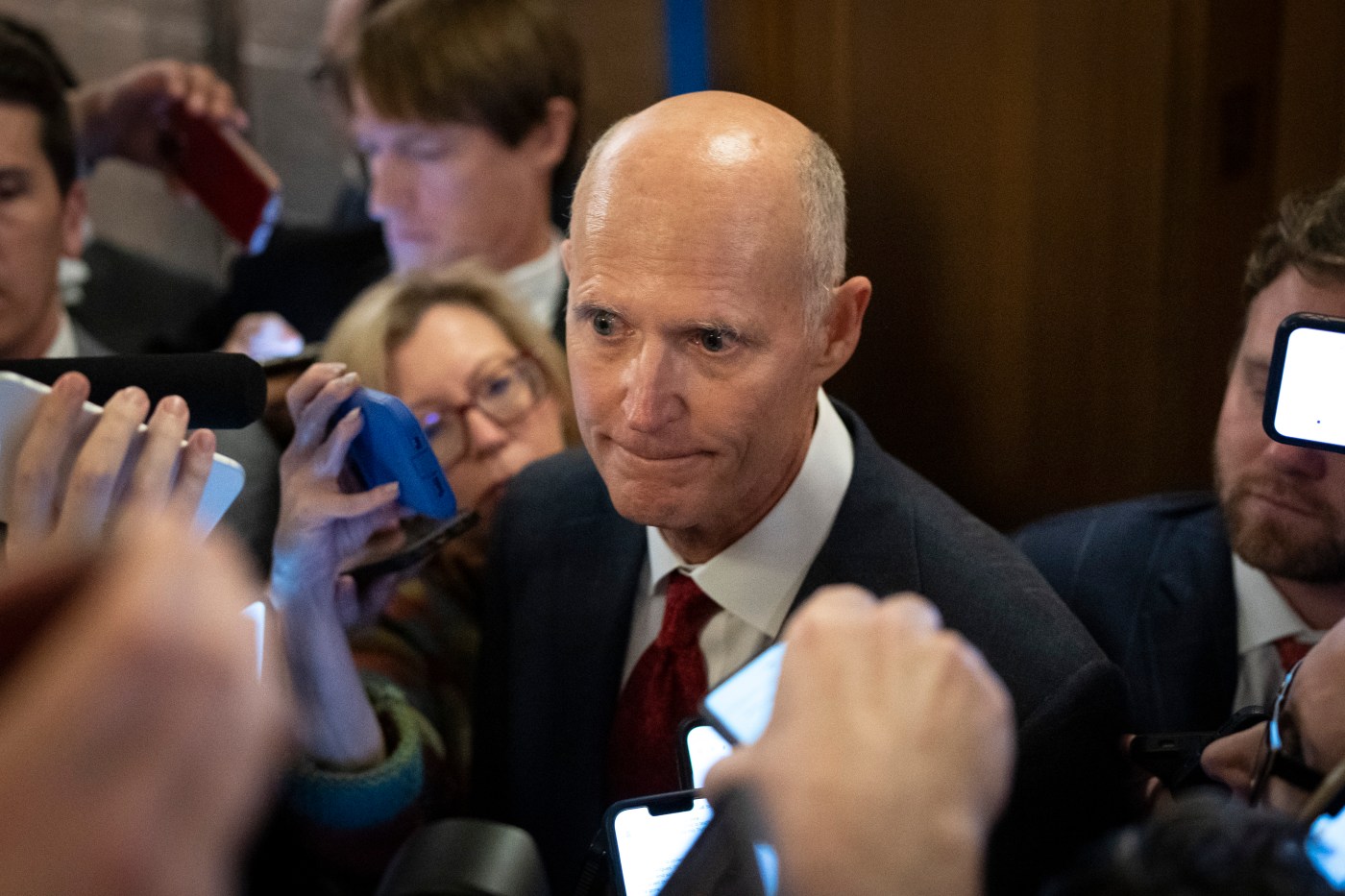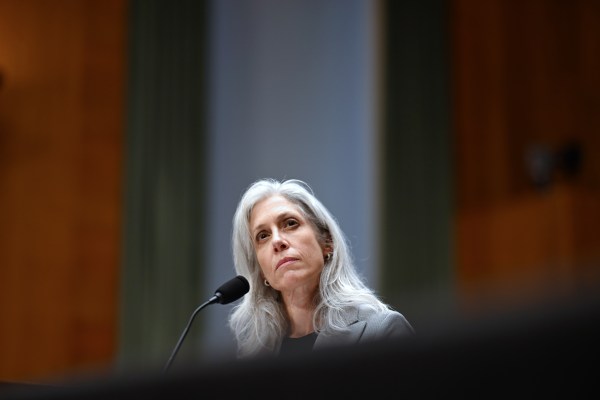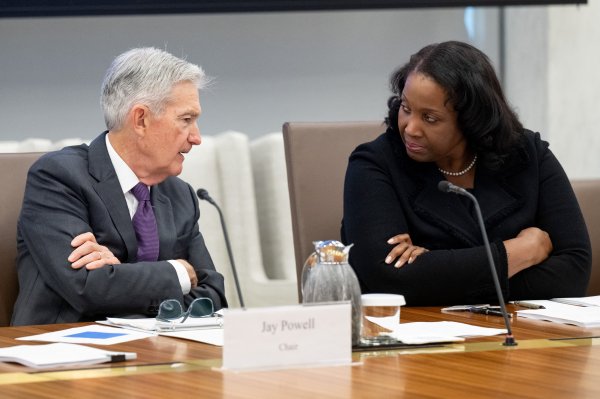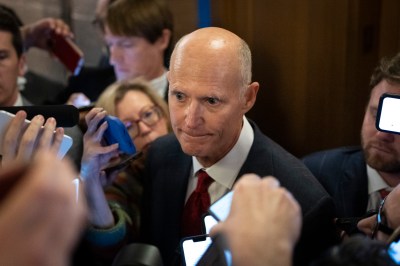The regular conference lunches held by both parties in the Senate are intended to be a weekly mind-meld—an opportunity for lawmakers to weigh in on issues and get everybody on the same page for upcoming legislative fights. Then there was yesterday’s Republican lunch.
Louisiana Sen. Bill Cassidy left the meeting, which lasted more than three hours, first. How was it? “Very cordial,” he answered. A bit later, Texas Sen. Ted Cruz was talking so loudly he could be heard by reporters waiting outside the room.
By the end of the lunch, Florida Sen. Rick Scott—the current chair of the Republican Senate campaign arm—had channeled the turmoil into an official challenge: He will run for conference leader against Mitch McConnell, the longest-serving Republican leader in Senate history.
“I believe it’s time for the Senate Republican Conference to be far more bold and resolute than we have been in the past,” Scott said in a letter to his colleagues. “I do not believe we can simply continue to say the Democrats are radical, which they are. Republican voters expect and deserve to know our plan to promote and advance conservative values.”
The critique hearkened back to a long-simmering dispute between the two Republicans. In February, Scott released an “11-Point Plan to Rescue America,” a policy document intended to position him as a GOP visionary. “Our nation’s future can be bright—and this is my plan to make it so,” he wrote. “I’ll warn you; this plan is not for the faint of heart.” It also wasn’t for McConnell, who openly criticized parts of the document: “We will not have as part of our agenda a bill that raises taxes on half the American people and sunsets Social Security and Medicare within five years.”
Even before Scott’s leadership announcement, the bad blood between the two had become obvious. There had been friction for months between the two huge funding operations that Scott and McConnell control, and during Tuesday’s lunch officials for the groups were openly feuding on Twitter. (The fight was over which was doing more to help Georgia GOP Senate candidate Herschel Walker in his runoff.)
It had been plain Scott had his eye on a perch higher than the National Republican Senatorial Committee for a while. But many thought Republicans’ failure to retake the Senate had soured him on directly challenging McConnell. Politico reported last week that Scott had decided against such a move the morning after the midterms.
While Scott’s bid is a remarkable challenge to McConnell’s leadership, it may be more symbolic than anything. On Tuesday, Scott and his allies declined to say whether they have the votes to depose the minority leader. McConnell himself was more sanguine. “I have the votes,” he told reporters. “I will be elected.”
McConnell also waved off Scott’s critique that the lack of an explicit GOP agenda led to a poor Republican showing in the midterms.
“We underperformed among independents and moderates because their impression of many of the people in our party and leadership roles is that they are involved in chaos, negativity, excessive attacks—and it frightened independent and moderate Republican voters,” the leader said.
Still, the Scott coalition picked up at least a few senators at the lunch who hadn’t previously made their opposition to McConnell as leader known. “I’m going to support whatever is going to change the current dynamic,” Sen. Mike Braun told reporters, “which for me is not as much about the leader as the leadership technique.”
The leadership vote is scheduled to take place today, but Scott and his allies hope to buy more time with a procedural argument: It makes little sense, they say, to forge ahead with conference elections before the entire conference is seated. Those elections should therefore be delayed until after the Georgia runoff, to ensure Walker has a say if elected.
“For us, Herschel Walker’s critical,” Sen. Josh Hawley, who is supporting Scott, told reporters after the lunch. “He should get to vote. I mean, I don’t know what you say to the guy—‘please, please, please win, but oh, we have no interest in your views, and we’re not going to let you vote.’”
McConnell acknowledged at his presser that Republicans were still discussing whether the vote would go forward as planned. Cruz, who supports Scott, told reporters he’d officially move to delay the vote this morning; a simple majority of the Republican conference would have to agree to Cruz’s objection to delay the vote. A delay would benefit Scott, giving him more time to boost his profile as a candidate for the top job and organize opposition.
“I’m not satisfied with the status quo, and so I think we ought to have an option,” Scott told reporters after the lunch. “I still think they ought to delay the election. I don’t know if we’re going to. There’ll be a vote tomorrow.”






Please note that we at The Dispatch hold ourselves, our work, and our commenters to a higher standard than other places on the internet. We welcome comments that foster genuine debate or discussion—including comments critical of us or our work—but responses that include ad hominem attacks on fellow Dispatch members or are intended to stoke fear and anger may be moderated.
With your membership, you only have the ability to comment on The Morning Dispatch articles. Consider upgrading to join the conversation everywhere.